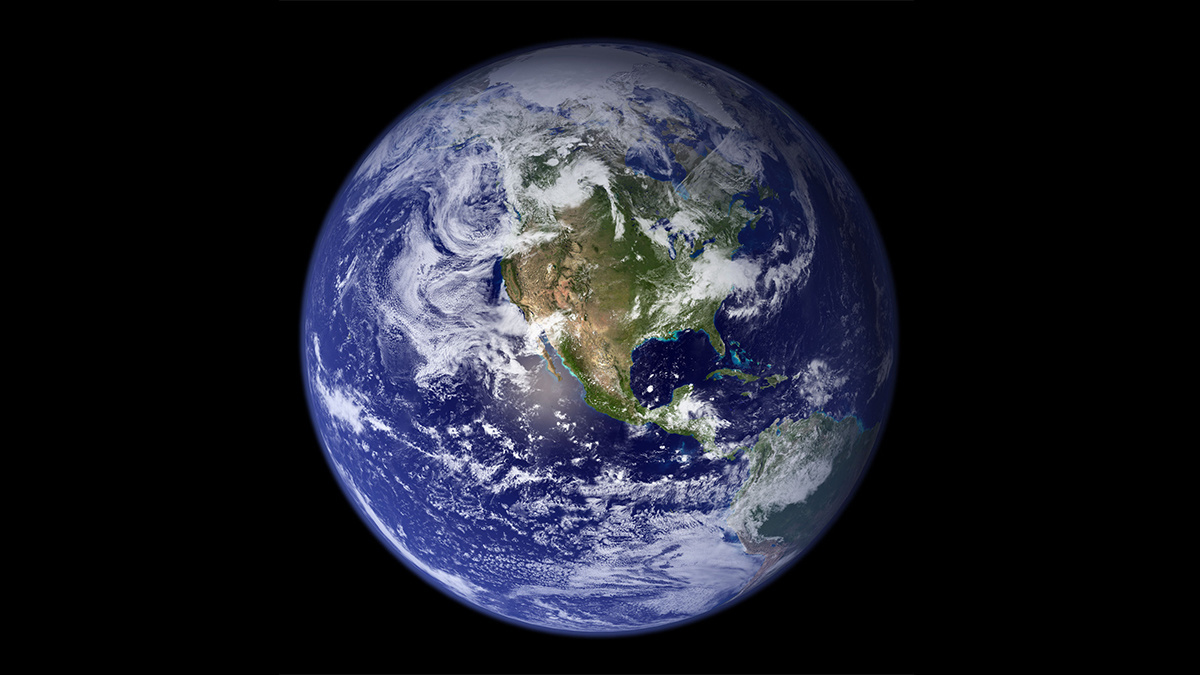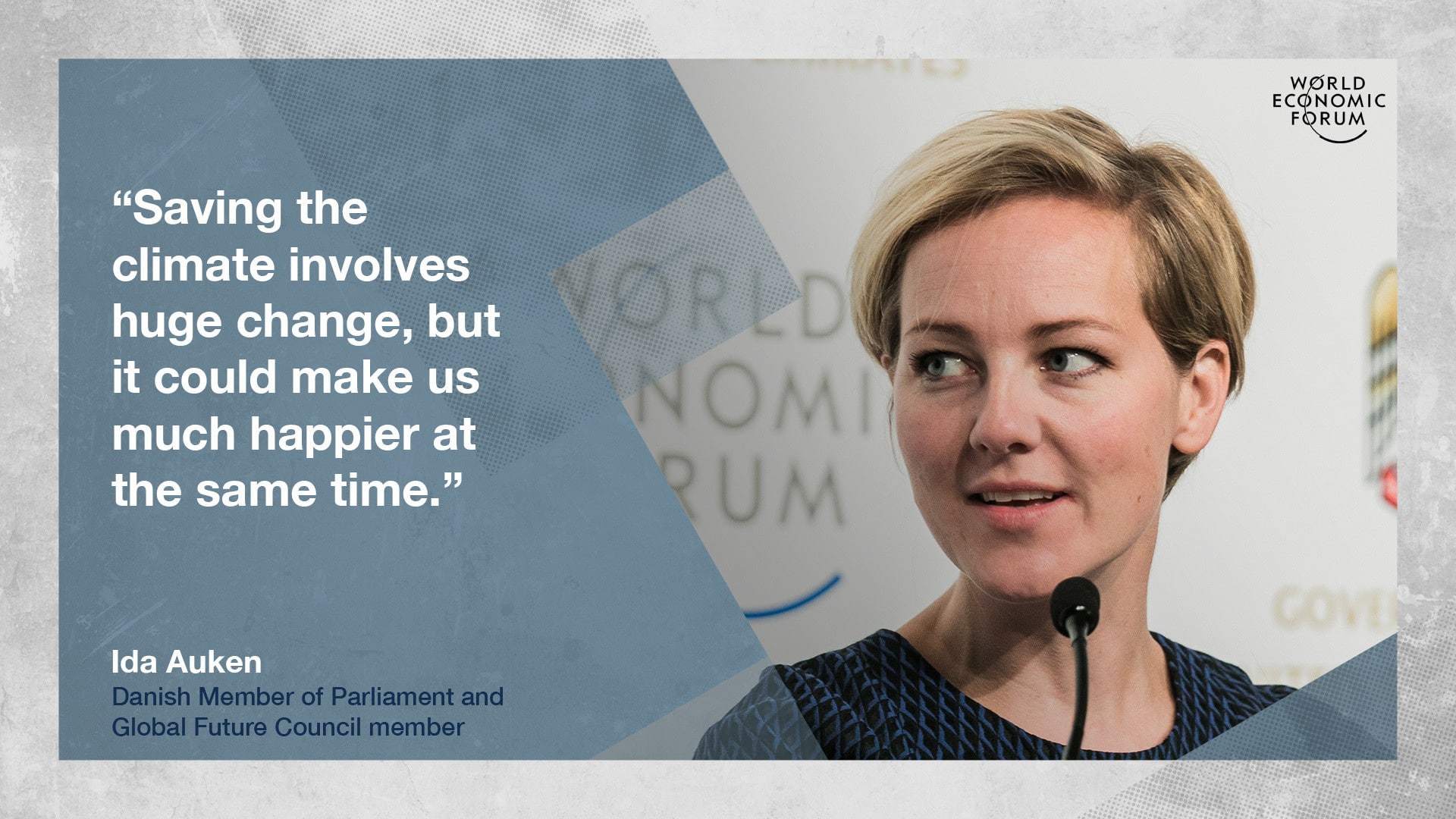
This Is What 2030 Could Look Like if We Win the War on Climate Change

NASA Goddard Space Flight Center Image by Reto Stöckli on Feb. 8, 2002.
By Ida Auken
By 2030, your CO2 emissions will be greatly reduced. Meat on your dinner table will be a rare sight. Water and the air you breathe will be cleaner and nature will be in recovery. The money in your wallet will be spent on being with family and friends, not on buying goods. Saving the climate involves huge change, but it could make us much happier at the same time.
Right now, we are losing the fight against climate change – but what would winning look like? What is life like in a green world?
Here’s one version of a “CO-topia”:
You walk out of your front door in the morning into a green and livable city, where concrete has dwindled and green facades and parks are spreading. If you choose to call a car, an algorithm will calculate the smartest route for the vehicle and pick up a few other people on the way.
Since the city council’s ban on private cars in the city, lots of new mobility services have arrived. It is cheaper for you not to own your own car, which, in turn, reduces congestion so you arrive at your destination more easily and quickly and don’t have to spend time looking for somewhere to park. You can also choose to travel by bike, scooter or public transit.
The air you breathe in the city is cleaner because there are far fewer cars on the streets and the rest are electric – all electricity is green in fact. There is less noise and much more space for parks and pedestrian streets since all the parking space became available. For lunch you can choose from dozens of exciting meals – most of them are plant-based, so you eat more healthily and are more environmentally friendly than when lunch meant choosing between five types of burger.

Single-use plastics are a distant memory. You still grab a to-go coffee, but it comes in a reusable cup that you turn in at the next coffee shop to get your deposit back. The same system applies to plastic bottles and other take-away containers. At home, all of your household appliances have been turned into service contracts. If your dishwasher is about to break down, it is no longer your problem. The service provider already knows about the problem and has sent someone to fix it. When the machine no longer works, the provider picks up the old machine and installs a new one.
People are trying out new types of living arrangements with more shared functions and spaces. This means that more people can afford to live in cities. More houses are built with wood, which makes them nicer to live in and much better for the climate than concrete buildings.
Here are five simple ways you can act on climate changeSmall adjustments can make a world of difference.🔎 Learn more about tackling climate change: https://wef.ch/2IW1hah
Posted by World Economic Forum on Monday, July 22, 2019
When you buy something, you buy something that lasts; you buy it because you really need it and want to take care of it. But because you buy far fewer things, you can actually afford products of better quality and design. “Refuse, reuse, reduce, recycle” is the new way of looking at products: if you don’t need it, you refuse; if you buy it, you will use it again and again; and in the end, you recycle it. All packaging is made from three types of plastic or other new materials, so recycling is easier these days.
Agriculture has changed dramatically, as the new plant-based alternatives to meat and dairy products have made it harder for traditional animal-based products to compete. Much of the land formerly used to produce animal feedstock has become available. As people in cities have started to value going into nature, tourism, hunting and angling now offer new types of income for people living in rural areas. Forests and nature are again spreading across the globe. People travel more in their region and by train, so air traffic has started to decline. Most airlines have switched to electrofuels, biofuels or electricity.
Best of all, because citizens have stopped buying so much stuff, they have more money to spend on other things. This new disposable income is spent on services: cleaning, gardening, help with laundry, healthy and easy meals to cook, entertainment, experiences and fabulous new restaurants. All of these things give the average modern person more options and more free time to spend with their friends and families, working out, learning new skills, playing sports or making art – you name it and there’s more time to do it.
If we consider what the future could be, picking up the mantle against climate change may not seem so bad after all.
Ida Auken is a member of Parliament, Parliament of Denmark (Folketinget).

 233k
233k  41k
41k  Subscribe
Subscribe 